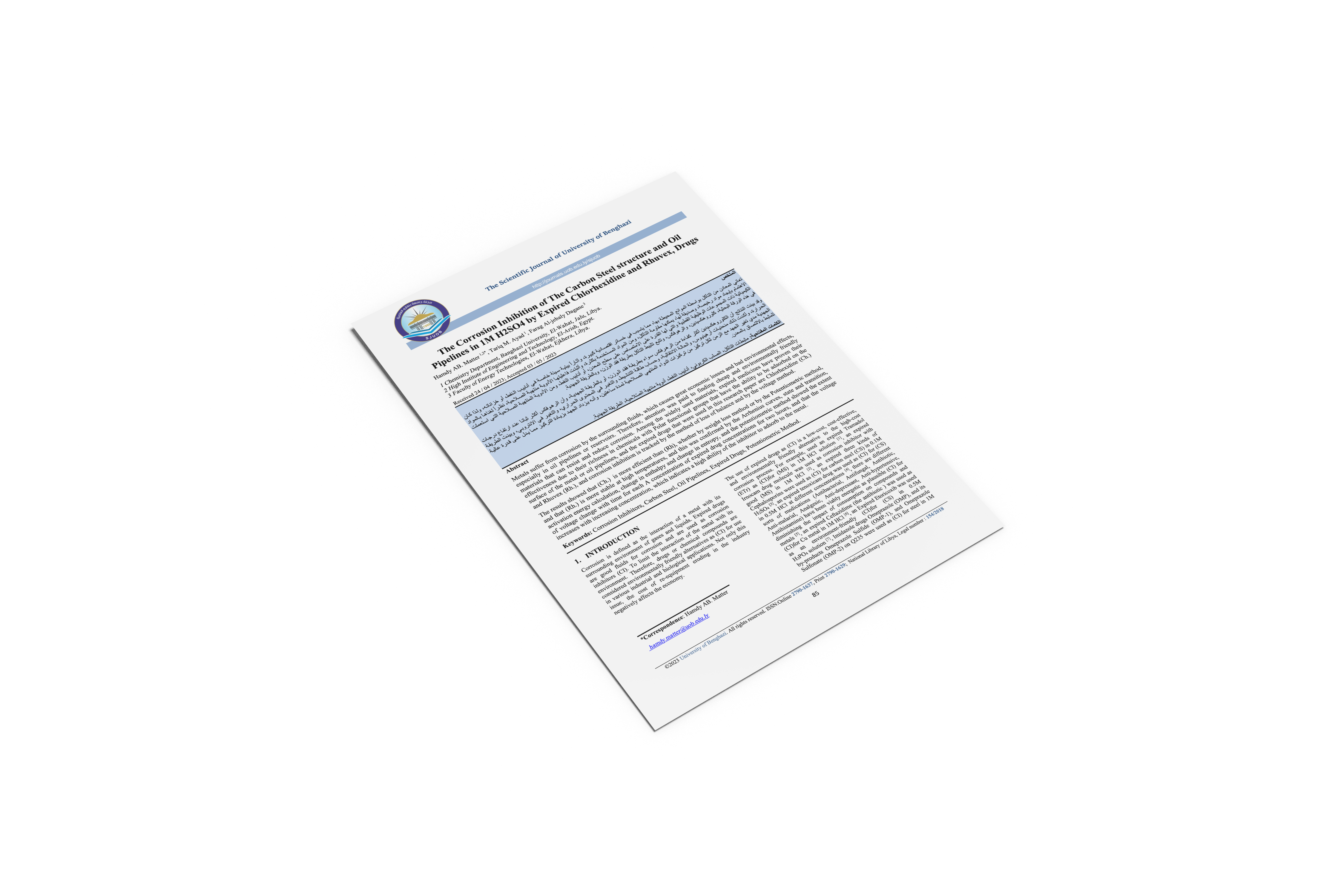The Corrosion Inhibition of The Carbon Steel structure and Oil Pipelines in 1M H2SO4 by Expired Chlorhexidine and Rhuvex, Drugs
DOI:
https://doi.org/10.37376/sjuob.v36i1.3930Keywords:
Corrosion Inhibitors, Carbon Steel, Oil Pipelines, Expired Drugs, Potentiometric MethodAbstract
Metals suffer from corrosion by the surrounding fluids, which causes great economic losses and bad environmental effects, especially in oil pipelines or reservoirs. Therefore, attention was paid to finding cheap and environmentally friendly materials that can resist and reduce corrosion. Among the widely used materials, expired medicines have proven their effectiveness due to their richness in chemicals with Polar functional groups that have the ability to be adsorbed on the surface of the metal or oil pipelines, and the expired drugs that were used in this research paper are Chlorhexidine (Ch.) and Rhuvex (Rh.), and corrosion inhibition is tracked by the method of loss of balance and by the voltage method.
The results showed that (Ch.) is more efficient than (Rh), whether by weight loss method or by the Potentiometric method, and that (Rh.) is more stable at high temperatures, and this was confirmed by the Arrhenius curves, state and transition, activation energy calculation, change in enthalpy and change in entropy, and the potentiometric method showed the extent of voltage change with time for each A concentration of expired drug concentrations for two hours, and that the voltage increases with increasing concentration, which indicates a high ability of the inhibitor to adsorb to the metal.
Downloads

Downloads
Published
How to Cite
Issue
Section
License
Copyright (c) 2023 The Scientific Journal of University of Benghazi

This work is licensed under a Creative Commons Attribution-NonCommercial-NoDerivatives 4.0 International License.


















